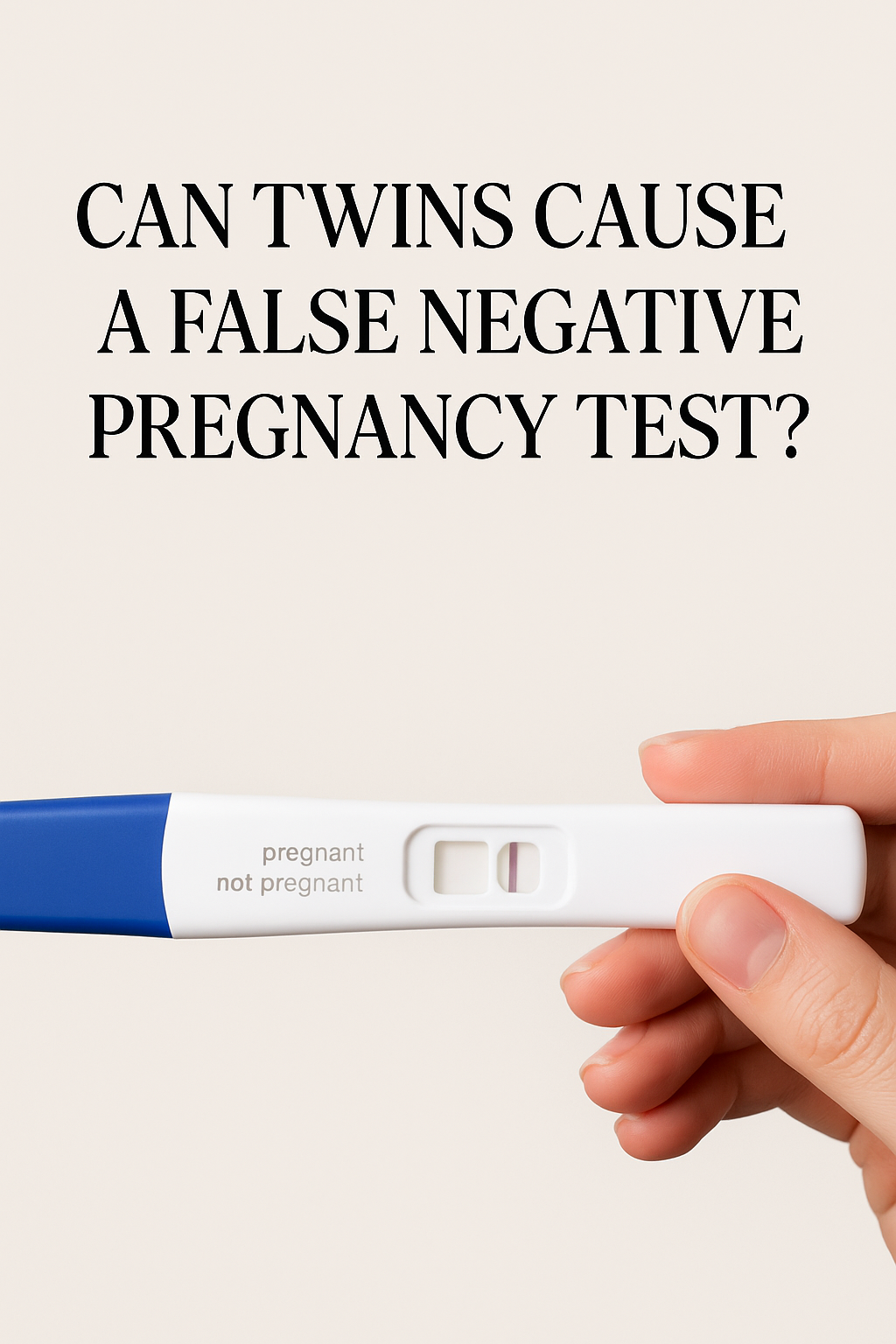Have you taken a pregnancy test and gotten a negative result, but something still doesn’t feel right? Maybe you’re experiencing early pregnancy symptoms, or your period is late. Could twins be the reason the test didn’t detect the pregnancy?
It’s a surprising idea, but yes, in rare cases, carrying twins can cause a false negative pregnancy test. Let’s break down how that happens, what you should look out for, and when to see your doctor.
What’s the Science Behind Pregnancy Tests?
To understand how a false negative happens, you need to know how home pregnancy tests work.
- Pregnancy tests detect hCG (human chorionic gonadotropin), the hormone produced shortly after a fertilized egg attaches to the uterus.
- This hormone builds up rapidly in early pregnancy.
- Most home pregnancy tests are accurate by the time of a missed period, but a few factors can interfere.
So, Can Twins Cause a False Negative?
The Short Answer: Yes, but It’s Rare.
If you’re pregnant with twins (or more), your body produces significantly more hCG than with a singleton pregnancy. You might think this would make the test more likely to turn positive, but in rare cases, it does the opposite.
The Culprit: The “Hook Effect”
This is a weird but real medical phenomenon.
- When hCG levels are too high, it can overwhelm the pregnancy test’s antibodies.
- Instead of showing a strong positive, the test gives a false negative.
- This occurs because the test’s chemistry becomes saturated and can’t form the proper “pregnant” line.
Other Common Reasons for a False Negative Pregnancy Test
Before jumping to conclusions about twins, consider these more common causes:
- Testing too early: hCG may not be detectable yet.
- Diluted urine: Drinking lots of water before testing can water down the hCG.
- Faulty or expired test: Always check the expiration date.
- Not following instructions: Timing and technique matter.
- Medical conditions: Issues like ectopic pregnancy or certain medications can affect hormone levels.
Signs You Could Be Pregnant With Twins
Even if your test says “not pregnant,” your body might be trying to tell you otherwise. Signs of a twin pregnancy can include:
- Severe nausea (morning sickness)
- Rapid weight gain
- Extreme fatigue
- Bloating and a visibly larger belly early on
- High hCG levels on a blood test
- A family history of twins
If you’re experiencing several of these symptoms and still getting negative results, it might be time to see a doctor.
Also read: 7 Signs a Woman Has Not Made Love for a Long Time
What Should You Do If You Suspect a False Negative?
Don’t panic—but don’t ignore your instincts either.
Here’s what you can do:
- Wait a few days and retest – Preferably with the first urine of the day.
- Use a digital test – These are often more sensitive.
- Get a blood test – A healthcare provider can measure hCG more accurately.
- Request an ultrasound – This is the most definitive way to confirm pregnancy and check for multiples.
FAQs: Real Questions, Real Answers
Can twins cause a false negative pregnancy test?
Yes. In very rare cases, extremely high hCG levels from a twin pregnancy can trigger the hook effect, resulting in a negative test even when you are pregnant.
How can I avoid the hook effect on a pregnancy test?
- Test with diluted urine (ironically, it may reduce hCG enough to show correctly).
- Use a digital test or visit your doctor for a blood test.
- Retest a few days later if symptoms persist.
How accurate are pregnancy tests for twin pregnancies?
Pregnancy tests are generally 99% accurate, but they are designed for typical hCG levels. Twin pregnancies can throw that off, particularly in the early stages.
What’s the best time to take a pregnancy test?
The best time is first thing in the morning, a few days after your missed period. This is when hCG levels are most concentrated.
Final Thoughts: Trust Your Body, Confirm with a Professional
A false negative pregnancy test—especially with twins—is rare, but it does happen. If your instincts say you’re pregnant and something feels off, trust your gut and consult a healthcare provider. Blood tests and ultrasounds can provide clear answers that a home test might miss.
And remember: whether it’s one baby or two, early prenatal care is key to a healthy pregnancy. Don’t wait for that second line to show up—get the answers you need.
External Resources
To learn more, check out these trusted medical sources:


